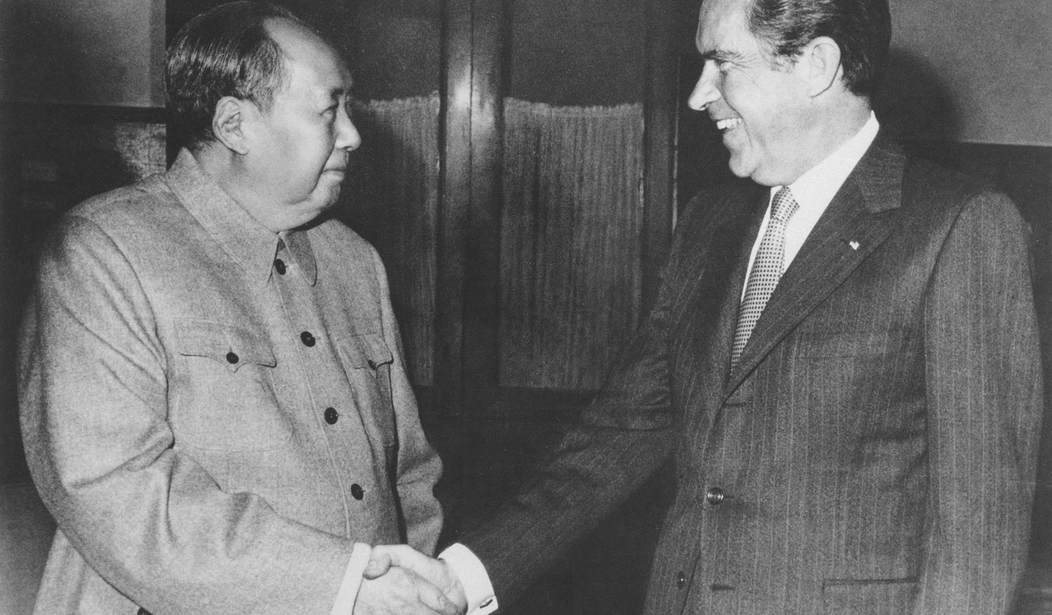Very few things I have said have elicited as much negative attention as this: What people say in private tells little, if anything, about their character. Left-wing critics have had a field day mocking me (mockery is the left's substitute for argument), but even some religious conservatives have taken issue with me (without the mockery) -- don't I know that it is precisely how we act in private that most clearly reveals our character?
This issue, of course, originally arose as a result of what then-reality TV host Donald Trump said in private to then-"Access Hollywood" host Billy Bush in 2005. I thought then, as I do now, that people greatly overstated the importance of the remarks -- because they were made in private.
In order to understand why private remarks usually mean nothing, we need to make two critical distinctions: between private and public, and between speech and actions.
Here are the four categories:
1. Private speech.
2. Private actions.
3. Public speech.
4. Public actions.
The last three are very important and, therefore, reveal a person's character. But what we say in private is not important. Why? Because it doesn't necessarily affect anyone (except potentially the person hearing us).
This is so obvious that it is depressing that it needs to be spelled out. It shows how small a role reason, especially moral reasoning, plays in many people's lives. We live at a time when what people feel substitutes for thought and reason. In the infamous "Access Hollywood" case, most people feel repulsed by what Trump said, and for most of them, that suffices to determine Trump's character.
So, then, allow me to spell this out.
Does what you say to your therapist, which is obviously in private, reveal your character? No one believes so. If a faithful married man were to tell his psychiatrist that he often fantasizes about having sex with women other than his wife -- and for that matter, wishes he could grab women by their genitalia -- would that reveal what type of person he is? If a woman, after years of taking care of her elderly mother, who suffers from Alzheimer's, were to tell her therapist or a close friend that sometimes she wishes her mother would die, would that tell us anything about the woman's character?
Recommended
Ironically, the answer is yes -- but in a completely different way than most people think. If people say something ignoble in private but don't act on what they say, that shows good character, not bad.
To cite another example, then-President Richard Nixon was taped making private comments about his dislike of many Jews. When this was revealed, people who hated Nixon used those tapes to label Nixon an anti-Semite. But it was Richard Nixon as president who Israeli leaders credited with saving Israel during the Jewish state's 1973 war (the Yom Kippur War) with Egypt. Two years ago, Haaretz, Israel's leading left-wing newspaper, wrote: "Nixon stands out among presidents for taking the boldest risk for Israel: a much-needed arms airlift during the 1973 Yom Kippur War. ... Preoccupied by Watergate and mired in Vietnam, and against the advice of his Jewish adviser, Nixon risked a new war with the Soviets to save Israel. Nixon 'made it possible for Israel to win, at some risk to his own reputation and at great risk to the American economy,' historian Stephen Ambrose said."
A similar situation existed regarding former President Harry Truman. According to biographers David McCullough and Merle Miller, in private, Truman often used the word "kike" when talking about Jews (for example, he referred to New York City as "kike town" in a letter to his wife). That is the Jewish equivalent of the N-word, a word he also often used in private. Yet it was Truman in 1948 who, against the pleas of the entire State Department, was the first world leader to recognize the new state of Israel, and who, as president, racially integrated the U.S. armed services.
Actions (and public speech) matter, not private speech.
Maybe Truman and Nixon didn't like Jews. As a Jew, I don't give damn what you think about Jews. I only care about how you treat Jews. Most evangelicals believe I cannot go to heaven because I do not accept Christ. But evangelicals are not only among my closest friends; they are, by far, the Jews' best friends today. That's what matters to me. I don't judge people by their theology any more than I judge people by their private statements. Fools judge people by their theology and their private statements.
One more question for those who believe private speech tells us all we need to know about a person's character: Do thoughts tell us all we need to know? And if not, why not?
Dennis Prager is a nationally syndicated radio talk-show host and columnist. His latest book, published by Regnery in May 2019, is "The Rational Bible," a commentary on the book of Genesis. His film, "No Safe Spaces," came to theaters fall 2019. He is the founder of Prager University and may be contacted at dennisprager.com.

























Join the conversation as a VIP Member